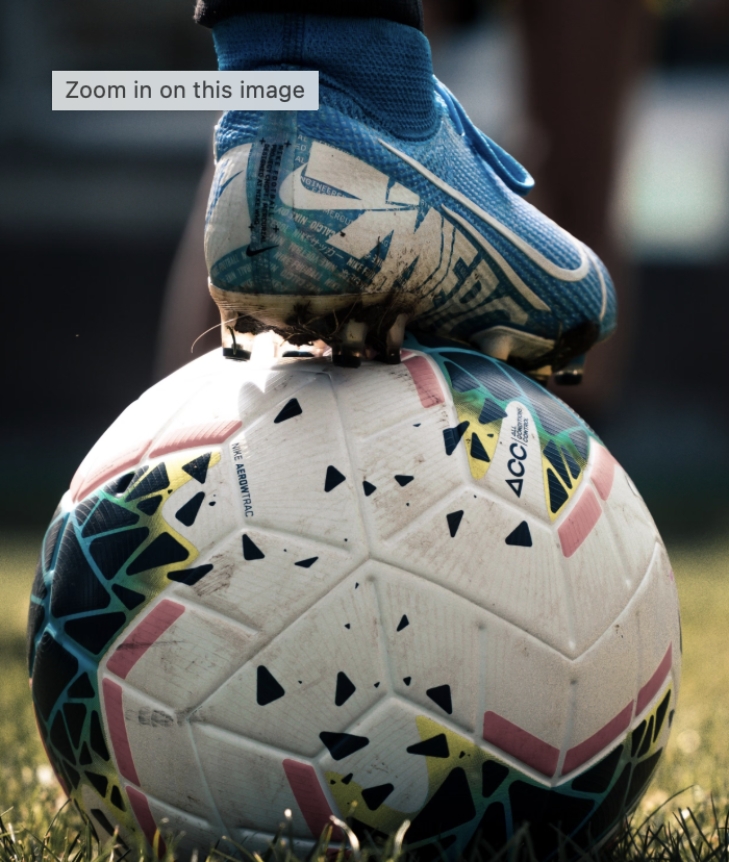Warning: Attempt to read property "params" on null in /home/notinhal/public_html/plugins/k2/k2canonical/k2canonical.php on line 382
Football as a Gateway to Academic and Personal Growth
Football is more than just a sport—it is a powerful tool for personal and academic development. Many students who participate in football learn essential life skills that extend beyond the field. It helps them build discipline, teamwork, and perseverance, which are crucial for success in school and life. By managing both football and academics, students develop time management skills, which can help them excel in their studies.
Balancing sports and studying may seem challenging, but football players often find ways to stay on top of their schoolwork. They become more efficient in completing homework, assignments, and projects while staying committed to their athletic goals. Through proper time management, they not only maintain good grades but also develop a work ethic that benefits them throughout their academic journey.
In addition, football offers opportunities for scholarships and career advancements. Many colleges look for student-athletes who can balance education and sports, providing them with the chance to pursue higher education while playing at a competitive level. Some students also explore ways to earn money while studying, such as tutoring, freelancing, or finding opportunities to write papers for money, helping them support their academic needs.
Football is not just about physical activity—it fosters leadership, responsibility, and teamwork. These qualities contribute to academic and personal success, shaping students into well-rounded individuals. By learning how to balance football with studying, students can enjoy the benefits of both worlds and prepare for a brighter future.
How Football Supports Academic Growth
Enhancing Discipline and Focus
Football demands dedication, consistency, and mental focus. Student-athletes must follow strict training schedules while keeping up with their academic responsibilities. This level of commitment helps them develop the discipline needed to complete homework, assignments, and studying on time.
Additionally, football teaches players to concentrate on their goals and work towards them despite challenges. This ability to stay focused extends to academics, where students learn to manage distractions and concentrate on their schoolwork, college projects, and learning objectives.
Improving Time Management Skills
Student-athletes often have limited free time, making it essential for them to manage their schedules effectively. Balancing school and football helps students develop strong time management skills, ensuring they complete their assignments, homework, and studying before engaging in practice or games.
Some effective time management strategies include:
- Creating a daily schedule to balance studying and training
- Prioritizing important tasks such as exams and project deadlines
- Using study breaks wisely to maximize productivity
By following these strategies, students can maintain both academic success and athletic performance without feeling overwhelmed.
Football and Personal Growth
Building Leadership and Teamwork Skills
Football is a team sport that requires players to communicate, collaborate, and support each other. These skills help students excel in school, college group projects, and assignments, where teamwork is often required to complete tasks effectively.
Student-athletes often take leadership roles on their teams, learning how to make important decisions and motivate others. These leadership experiences transfer to the classroom, where they can inspire their peers, take initiative in group discussions, and contribute positively to academic environments.
Developing Resilience and Problem-Solving Abilities
Football teaches students how to handle setbacks, such as losing a game or facing tough competition. These experiences help them develop resilience, an essential skill for overcoming academic challenges such as difficult homework, assignments, and exams.
Problem-solving is another valuable skill learned through football. Players must think quickly, adapt to changing situations, and develop strategies to win. This mindset benefits students in academics by helping them approach problems logically and find effective solutions.
Balancing Football and Academics Successfully
Effective Study Techniques for Student-Athletes
Maintaining a balance between football and school requires effective study habits. Some useful strategies include:
- Using time wisely: Study during breaks or travel time
- Breaking study sessions into manageable chunks: Avoid cramming before exams
- Seeking help when needed: Asking teachers or tutors for guidance when struggling with concepts
By adopting these techniques, student-athletes can keep up with their academic workload while excelling in their sport.
The Role of Academic Support Systems
Many schools and colleges offer support services for student-athletes, such as tutoring, mentoring, and academic counseling. These resources help students stay on track with their learning, studying, and assignments while participating in football.
Coaches and teachers also play a vital role in ensuring that student-athletes maintain their grades. By fostering a supportive environment, they encourage students to prioritize their education while pursuing their athletic dreams.
Scholarships and Career Opportunities in Football
Earning College Scholarships Through Football
Many talented football players receive scholarships that allow them to attend college while playing at a competitive level. These scholarships help students cover tuition fees, making education more accessible.
To qualify for scholarships, student-athletes must maintain good grades, perform well on the field, and demonstrate leadership qualities. Keeping a strong balance between academics and sports is essential for securing these opportunities.
Career Paths in Football and Academics
Football can open doors to various career paths, including:
- Professional football
- Coaching and sports management
- Physical therapy and sports medicine
- Broadcasting and journalism
Even if a student does not pursue a professional football career, the skills gained from the sport can help them succeed in other fields, making it a valuable experience for personal and academic growth.
Conclusion
Football is a powerful tool for both academic and personal development. It teaches students discipline, resilience, teamwork, and leadership—qualities that are essential for success in school, college, and life. By managing their time effectively, student-athletes can excel in both football and academics, setting themselves up for future success.
For those juggling multiple responsibilities, seeking nursing assignments help or academic support services can make a significant difference in managing workload and maintaining high performance in both sports and studies. Football is not just about winning games—it is about developing essential life skills that prepare students for a bright future.







